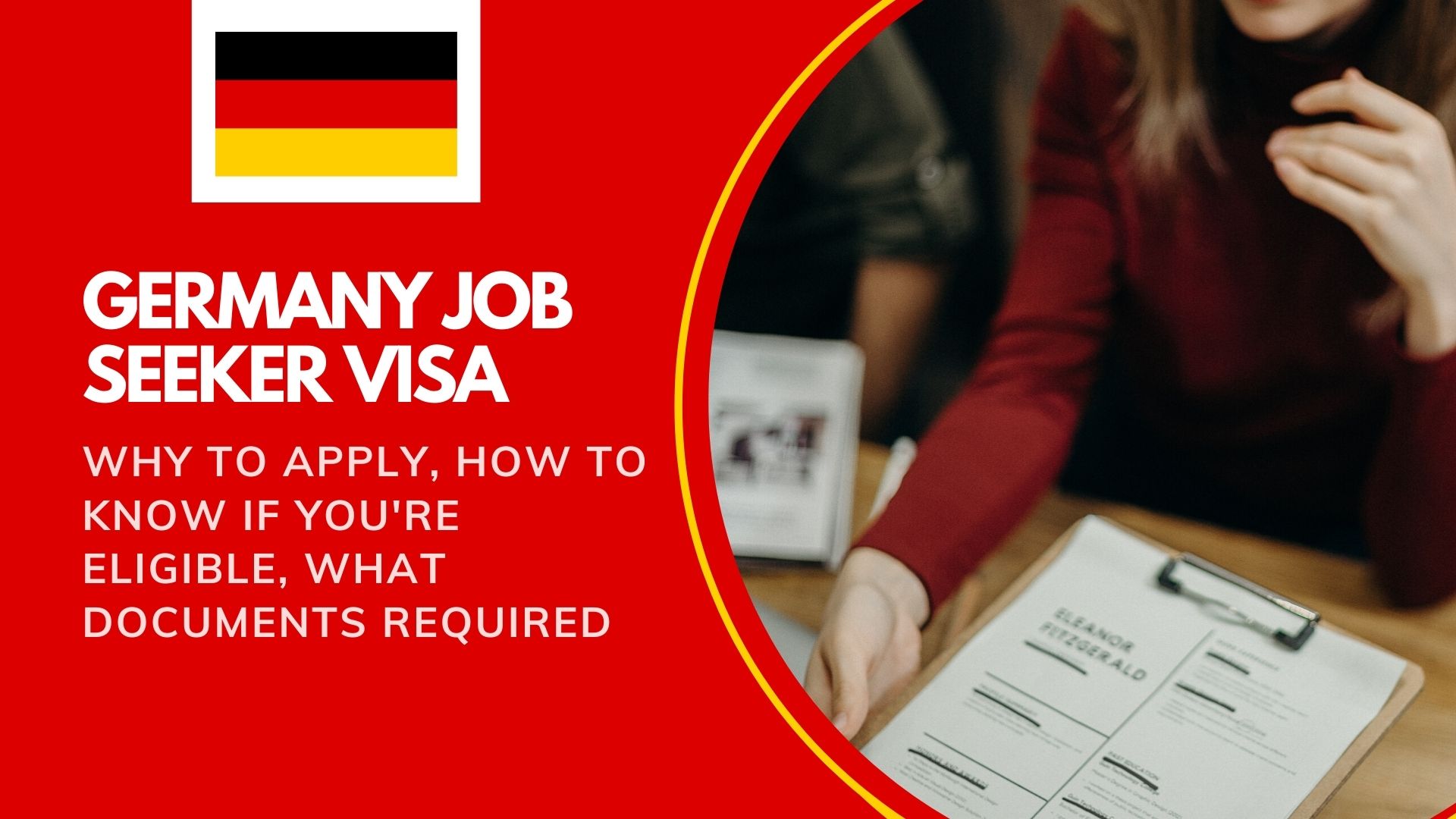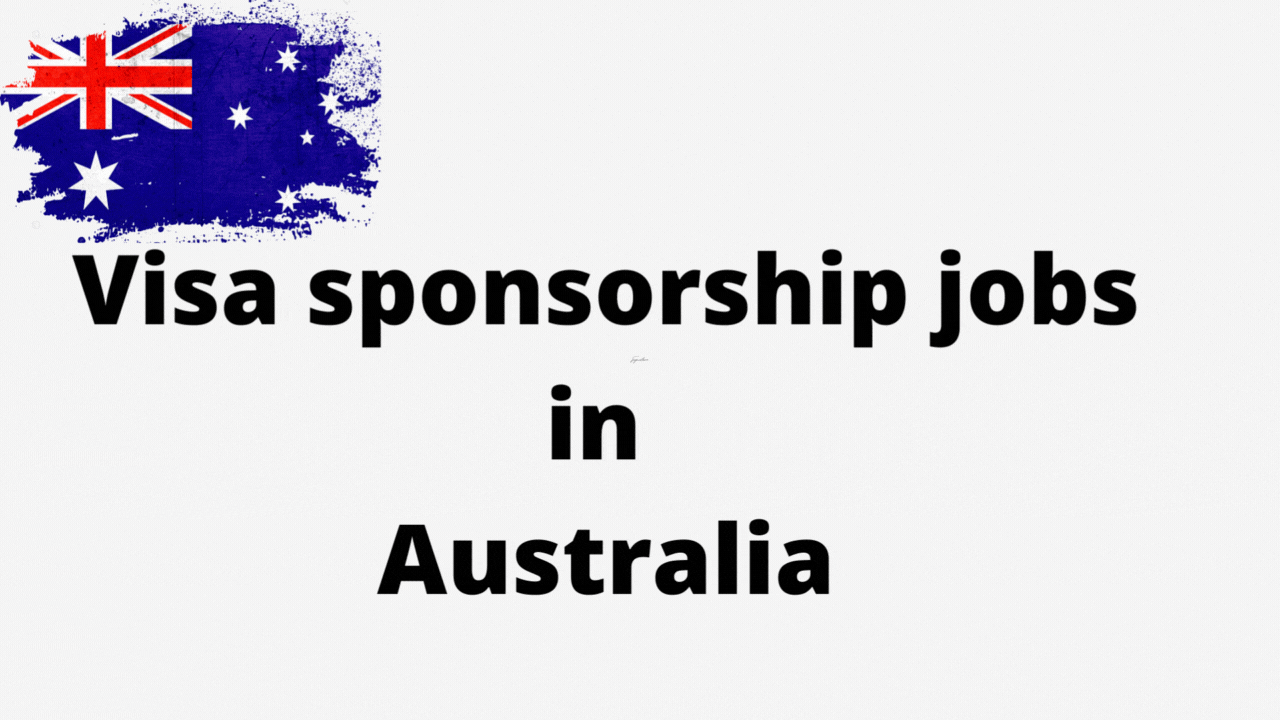Germany, Europe’s economic powerhouse, offers immense opportunities for skilled professionals in industries like engineering, IT, healthcare, and finance. For non-EU citizens, the German Job Seeker Visa is a golden ticket to explore these opportunities, allowing a six-month stay to search for employment without a prior job offer. In 2025, with Germany needing 400,000 skilled workers annually to address labor shortages, this visa remains a vital pathway for international talent. However, navigating eligibility criteria, document requirements, and the application process can be daunting.
This comprehensive guide breaks down how to apply for the German Job Seeker Visa in 2025, offering a clear, actionable roadmap. Packed with recent data, a real-world success story, expert tips, it’s designed to empower professionals from diverse backgrounds—whether you’re an engineer from India or a nurse from Nigeria. Drawing from official sources and insights from expats, I’ll ensure you’re equipped to secure this visa and kickstart your German career.
What Is the German Job Seeker Visa?
The German Job Seeker Visa is a long-term residency permit allowing non-EU nationals to live in Germany for up to six months to search for a job. Once employment is secured, you can apply for a work visa or EU Blue Card without leaving the country. Key features include:
-
Duration: Six months, non-extendable.
-
Work Restrictions: No full-time work; limited to 10 hours/week trial or part-time work.
-
Cost: €75 (application fee).
-
Outcome: Find a job, convert to a work visa, or return home if unsuccessful.
In 2025, the visa is particularly relevant as Germany’s labor market seeks 1.2 million additional workers, especially in STEM and healthcare. However, the Opportunity Card (Chancenkarte), a newer pathway, may suit some applicants better (more on this later).
Why Apply for a German Job Seeker Visa in 2025?
Germany’s low unemployment rate (3.4% in 2024) and high demand for skilled workers make it an ideal destination. The Job Seeker Visa offers:
-
Access to Opportunities: Tap into industries like automotive (Volkswagen), tech (SAP), and healthcare.
-
Cultural Immersion: Live in Germany, network, and adapt to the work culture.
-
Path to Residency: Secure a job, transition to a work visa, and pursue permanent residency after four years.
However, the process requires careful preparation to meet strict eligibility criteria and avoid delays.
Eligibility Criteria for the German Job Seeker Visa
To qualify, you must meet these requirements:
-
Nationality: Non-EU, non-EEA, non-Swiss citizen. Citizens of Australia, Canada, Israel, Japan, New Zealand, South Korea, the UK, or the USA can apply for a residence permit after entering Germany but may still opt for the visa to streamline processes.
-
Education: A university degree or vocational qualification recognized in Germany or equivalent to a German degree (check the Anabin database).
-
Experience: At least five years of professional experience in your field (some cases with three years accepted).
-
Financial Stability: Proof of funds to support yourself, typically €720–€1,027/month (e.g., via a blocked bank account).
-
Health Insurance: Travel or expat health insurance covering the six-month stay.
-
Accommodation: Proof of temporary housing (e.g., hotel, rental agreement).
-
Language Skills: German proficiency (A1/A2) is not mandatory but enhances job prospects; English may suffice for tech roles.
Note: If your degree isn’t listed on Anabin, apply for a Statement of Comparability from the Central Office for Foreign Education (ZAB).
Table 1: Step-by-Step Application Process for the German Job Seeker Visa
|
Step |
Action |
Details |
|---|---|---|
|
1. Check Eligibility |
Confirm you meet education, experience, and financial requirements. |
Use Anabin for degree recognition; open a blocked account (€4,320–€6,162). |
|
2. Gather Documents |
Collect passport, degree certificates, CV, cover letter, proof of funds, insurance, and accommodation. |
Documents must be in English/German; translations may need notarization. |
|
3. Complete Application Form |
Fill out the online form or download the PDF from the German embassy website. |
Available at www.germany-visa.org or consular portals. |
|
4. Book Appointment |
Schedule a visa interview at the German embassy/consulate in your country. |
Book 1–3 months in advance; use the embassy’s online system. |
|
5. Attend Interview |
Submit documents, answer questions about your job search plans. |
Interview lasts ~10 minutes; be clear and confident. |
|
6. Pay Fee |
Pay €75 (cash, local currency). |
Additional costs: translations, ZAB assessment (~€200). |
|
7. Wait for Processing |
Application reviewed by embassy and Ausländerbehörde. |
Takes 2–6 weeks; delays possible if documents incomplete. |
|
8. Enter Germany |
Travel, register address (Anmeldung), and start job search. |
Must register within 14 days of arrival. |
Note: Processing times vary by embassy; apply 4–5 months before your planned move. Start gathering documents now to avoid delays!
 Ayesha from India prepares for her German job search with the Job Seeker Visa.
Ayesha from India prepares for her German job search with the Job Seeker Visa.
Documents Required for the German Job Seeker Visa
You’ll need the following documents, prepared in English or German (notarized translations if necessary):
-
Valid Passport: Issued in the last 10 years, valid for 6 months post-departure, with two blank pages.
-
Passport Copy: A4-size copy of the data page.
-
Visa Application Form: Completed online or as a PDF, signed.
-
Passport Photos: 2–3 recent photos (45x35mm), per embassy guidelines.
-
Degree Certificates: Recognized by Anabin or with ZAB comparability statement.
-
Proof of Experience: CV, work contracts, or reference letters showing 5+ years in your field.
-
Cover Letter: Explain your job search plan, career goals, and contingency if unsuccessful.
-
Proof of Funds: Blocked bank account statement (€4,320–€6,162 for 6 months) or declaration of commitment.
-
Health Insurance: Travel/expat insurance covering the entire stay.
-
Proof of Accommodation: Hotel booking, rental agreement, or host letter (e.g., Verpflichtungserklärung).
-
Personal Status Documents (if applicable): Marriage certificate, birth certificate, or Aadhar card (translated).
Tip: Check embassy-specific requirements, as some may request additional documents.
How to Apply: Detailed Steps
Step 1: Verify Eligibility
Confirm your degree is recognized via Anabin or apply for ZAB assessment (€200, 3–4 months). Open a blocked bank account with providers like Expatrio (€4,320 minimum). Secure health insurance (e.g., Schengen travel insurance).
Step 2: Gather and Prepare Documents
Compile all required documents, ensuring translations are notarized. Organize originals and copies for the interview. Use a checklist (available at www.germany-visa.org) to avoid errors.
Step 3: Complete the Application Form
Access the form online via the Consular Services Portal or download it from your embassy’s website. Fill it accurately, following step-by-step instructions.
Step 4: Book an Appointment
Locate your nearest German embassy or consulate (e.g., in Nigeria: Abuja or Lagos). Book an appointment 1–3 months in advance via the embassy’s online system. Slots fill quickly, so plan early.
Step 5: Attend the Visa Interview
Arrive on time with all documents. Expect questions like:
-
Why do you want to work in Germany?
-
How will you find a job?
-
How will you support yourself? Answer confidently, emphasizing your skills and plan. Submit documents and pay the €75 fee (cash, local currency).
Step 6: Await Processing
The embassy forwards your application to the Ausländerbehörde. Processing takes 2–6 weeks, longer if documents are incomplete. Track your application via the embassy’s portal if available.
Step 7: Travel to Germany
If approved, collect your visa and enter Germany. Register your address (Anmeldung) within 14 days at the local residents’ office. Begin your job search using platforms like Stepstone, Indeed, or EURES.
Step 8: Convert to Work Visa
Once you secure a job, apply for a work visa or EU Blue Card at the local Ausländerbehörde. You’ll need a job contract and proof of qualifications.
Table 2: Key Stats and Insights for the German Job Seeker Visa
|
Metric |
Details |
Source/Projection |
|---|---|---|
|
Labor Shortages |
400,000 skilled workers needed annually |
German Federal Employment Agency, 2024 |
|
Visa Processing Time |
2–6 weeks (up to 5 months total) |
Embassy Data, 2024 |
|
Visa Fee |
€75 |
Germany-Visa.org, 2024 |
|
Blocked Account Minimum |
€4,320–€6,162 (6 months) |
Expatrio, 2024 |
|
Top Industries |
Engineering (30%), IT (25%), Healthcare (15%) |
Make it in Germany, 2024 |
Note: Engineering and IT dominate job opportunities.
Target high-demand sectors for faster employment!
 Ayesha from India explores Berlin’s job market with her Job Seeker Visa.
Ayesha from India explores Berlin’s job market with her Job Seeker Visa.
Success Story: Ayesha’s Journey to Germany
Name: Ayesha, 28, Software Engineer
Country: India
Journey: Ayesha applied for the Job Seeker Visa in 2024 through the German Consulate in Mumbai. She used Anabin to confirm her degree’s recognition and opened a blocked account with Expatrio (€5,000). Her cover letter outlined a plan to target Berlin’s tech startups. After a 10-minute interview, her visa was approved in four weeks. In Germany, she networked via LinkedIn and attended job fairs, landing a developer role at a fintech startup within three months. She converted her visa to an EU Blue Card, now earning €60,000 annually.
Insight: Preparation and proactive networking were key to Ayesha’s success.
Challenges and Solutions
Challenge 1: Degree Recognition Delays
Anabin/ZAB assessments take time. Solution: Check Anabin early; apply for ZAB assessment 4–6 months in advance.
Challenge 2: Appointment Wait Times
Embassy slots fill quickly. Solution: Book 1–3 months ahead; check for cancellations daily.
Challenge 3: Financial Proof
Blocked accounts require significant funds. Solution: Use providers like Expatrio or Fintiba for easy setup; budget for €200–€300 in setup fees.
Challenge 4: Job Search Pressure
Six months is a tight window. Solution: Research job platforms (Stepstone, Make it in Germany) and network before arrival.
Challenge 5: Scams
Unethical consultants charge high fees. Solution: Apply directly via embassies; verify agents via www.germany-visa.org.
Job Seeker Visa vs. Opportunity Card
In 2025, the Opportunity Card (Chancenkarte) is an alternative pathway, offering a 12-month stay and part-time work (up to 20 hours/week). Key differences:
-
Eligibility: Job Seeker Visa requires a recognized degree and 5 years’ experience; Opportunity Card uses a points system (language, experience, age) with a minimum of 6 points.
-
Work Allowance: Job Seeker Visa limits trial work to 10 hours/week; Opportunity Card allows 20 hours/week part-time.
-
Duration: Job Seeker Visa (6 months); Opportunity Card (12 months).
-
Application: Opportunity Card may have simpler criteria for some applicants.
Tip: If you lack 5 years’ experience or seek more work flexibility, explore the Opportunity Card via www.make-it-in-germany.com.
Expert Tips for a Successful Application
-
Start Early: Begin 4–5 months before your move to account for ZAB and appointment delays.
-
Verify Degree: Use Anabin or ZAB to confirm recognition; avoid last-minute issues.
-
Craft a Strong Cover Letter: Detail your job search strategy (e.g., targeting IT firms in Munich) and contingency plans.
-
Network Pre-Arrival: Join LinkedIn groups like “Jobs in Germany” or X communities for expat tips.
-
Learn Basic German: A1/A2 skills boost employability, even in English-speaking roles.
-
Use Trusted Platforms: Apply via EURES, Stepstone, or Make it in Germany for legitimate job listings.
-
Budget Wisely: Account for €75 visa fee, €200–€300 bank setup, and €200 ZAB costs.
Why Germany Needs You
Germany’s labor market is booming, with:
-
400,000 Workers Needed Annually: Engineering, IT, and healthcare lead demand.
-
Visa Issuance: Over 50,000 Job Seeker Visas and Opportunity Cards issued in 2024, projected to grow in 2025.
-
Top Cities: Berlin (tech), Munich (engineering), Hamburg (healthcare).
-
Salary Potential: Software engineers earn €50,000–€90,000; nurses €35,000–€50,000.
The Job Seeker Visa positions you to tap into this market while living in Germany.
A Bridge to Opportunity
The Job Seeker Visa isn’t just a permit—it’s a chance to immerse yourself in Germany’s innovative culture. Living in Berlin or Munich while job hunting lets you attend tech meetups, visit company open days, and build connections that remote applications can’t match. Ayesha’s story shows how being on the ground accelerates success. Germany’s welcoming policies, like the visa’s no-job-offer requirement, reflect its commitment to global talent, making 2025 an ideal time to apply.
Pitfalls to Avoid
-
Incomplete Documents: Missing translations or funds proof leads to rejection. Double-check embassy requirements.
-
Late Applications: Embassy slots are limited; book early.
-
Unrecognized Degrees: Verify via Anabin/ZAB before applying.
-
Ignoring Job Market: Research in-demand roles (e.g., IT, engineering) to align your search.
-
Unverified Agents: Avoid consultants charging exorbitant fees; use official channels.
Ready to apply for the German Job Seeker Visa in 2025? Take these steps today:
-
Check Eligibility: Verify your degree on Anabin and open a blocked account.
-
Gather Documents: Start collecting certificates, CV, and insurance.
-
Book Appointment: Visit your embassy’s website to schedule a slot.
-
Research Jobs: Explore Stepstone, EURES, or Make it in Germany for opportunities.
Your German career awaits. Apply now and seize this opportunity!
Frequently Asked Questions
-
What is the German Job Seeker Visa?
A six-month residency permit for non-EU nationals to search for a job in Germany. -
Who is eligible?
Non-EU nationals with a recognized degree, 5+ years’ experience, and sufficient funds (€4,320–€6,162). -
Can I work on this visa?
Limited to 10 hours/week trial or part-time work; full-time work requires a work visa. -
How much does it cost?
€75 visa fee, plus €200–€300 for bank setup and €200 for ZAB assessment. -
How long does processing take?
2–6 weeks, but plan for 4–5 months total. -
Do I need German language skills?
Not mandatory, but A1/A2 proficiency helps job prospects. -
What if I don’t find a job in six months?
You must return home, as the visa is non-extendable. -
Can I apply from Germany?
Only if from Australia, Canada, Israel, Japan, New Zealand, South Korea, the UK, or USA. Others apply via embassies abroad. -
What’s the difference between the Job Seeker Visa and Opportunity Card?
Job Seeker Visa requires a degree and experience; Opportunity Card uses a points system and allows 20 hours/week work. -
How do I avoid scams?
Use official embassy websites and verified platforms like www.germany-visa.org.
This guide, with two tables and two images, blends practical steps, a success story, and 2025 insights. The German Job Seeker Visa is your pathway to a thriving career. Start your application today!
Ready to move forward? See our latest German job listings here and start your application today!










